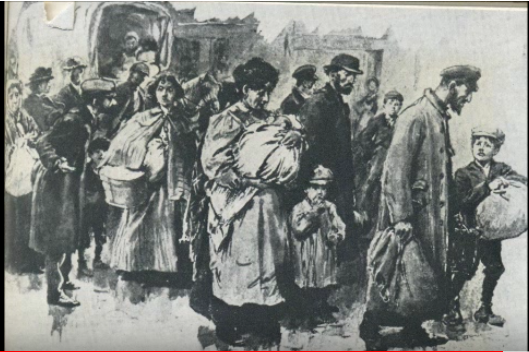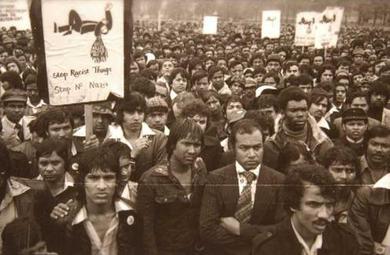Throughout this blog we use the spelling antisemitsm and antisemite. The reasons we do this are political and not pedantic as usefully spelled out in the Jewish Voice for Peace book, On Antisemitism
Throughout this book, we have chosen to use the spelling “antisemitism”, following the advice of scholars in Jewish Studies who have made a compelling case for this spelling. While this term is used to refer to anti-Jewish sentiment, the category “Semite” was actually imposed by scientific racism, a pseudo-scientific use of scientific techniques and hypotheses to identify and classify phenotypes, and to sort humans into different races. Scientific racism often supported or justified racial hierarchies. term “antisemitism” was notably popularized by the German writer and politician Wilhelm Marr, who used the term “Semitic” to denote a category of language that included Aramaic, Arabic, and Hebrew. Marr used this term to lend credence to his analysis of what he argued was a life-or-death struggle between Germans and Jews, a struggle that could not be resolved by assimilation.
According to Yehuda Bauer, the use of the hyphen and upper case, as in “anti-Semitism,” legitimises the pseudo-scientific category of Semitism. We have therefore chosen to spell the term as “antisemitism” throughout. There are contributors to this book who argue for reclaiming the term “Semite,” and emphasizing, among other things, the relationship between Hebrew and Arabic that the term implies. Those contributions retain the spelling of “anti-Semitism.” We do not want to minimize this analysis: it is crucial to understanding that the European invention of antisemitism saw European Jews as “others,” more like Arabs than Europeans, in the context of a civilizational and orientalist discourse. As contributions to this book make clear, as we fight antisemitism, it is essential that we fight Islamophobia and anti-Arab racism with equal vigour.
Similarly we give no time to the too often heard statement that ‘Arabs are semites too’, so “anti-semitism” must apply equally to anti-Palestinian attitudes. This is wrong for two reasons. Firstly, there are no “semites” to be anti. It is an invalid use of the name of a language group for a supposed race; it is like calling abuse of the French or Spanish anti-romanticism, since both French and Spanish are romance languages.
Secondly the meanings of words are defined by their usage not their origins. The etymology of many words would suggest something totally different meaning to their current meanings; neither toilets nor lavatories are where you go to wash despite their derivations. Antisemitism means hatred of Jews, even if Judeophobia might be a better word to describe the phenomenon.





 Liberty
Liberty
 ted a House of Lords meeting to launch the campaign for Britain to apologise for the impact on the native Palestinian people of the Balfour Declaration of 1917. Between them, the newspapers had smeared a whole meeting of Palestine sympathisers as ‘antisemitic’ and, by implication anybody who spoke at or attended similar meetings.
ted a House of Lords meeting to launch the campaign for Britain to apologise for the impact on the native Palestinian people of the Balfour Declaration of 1917. Between them, the newspapers had smeared a whole meeting of Palestine sympathisers as ‘antisemitic’ and, by implication anybody who spoke at or attended similar meetings.
